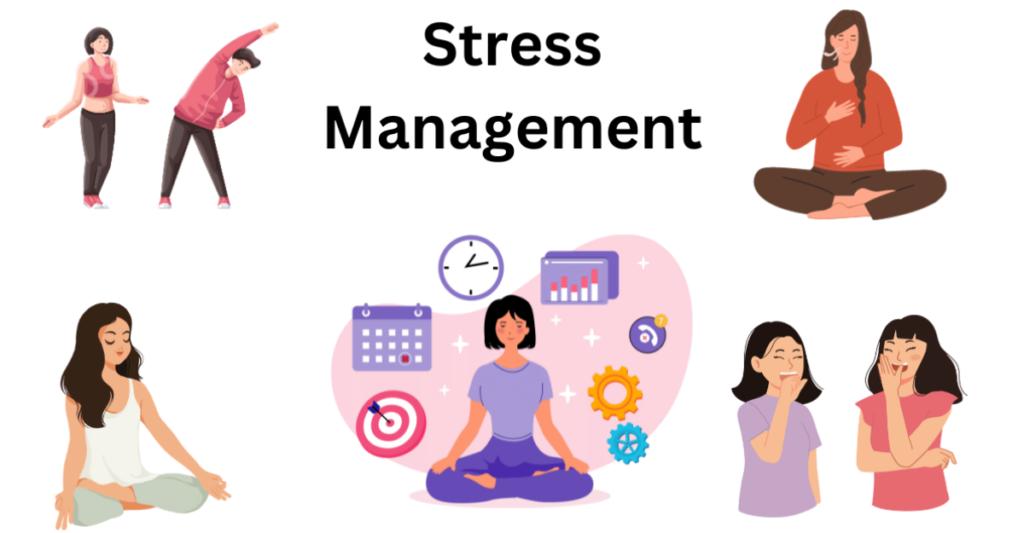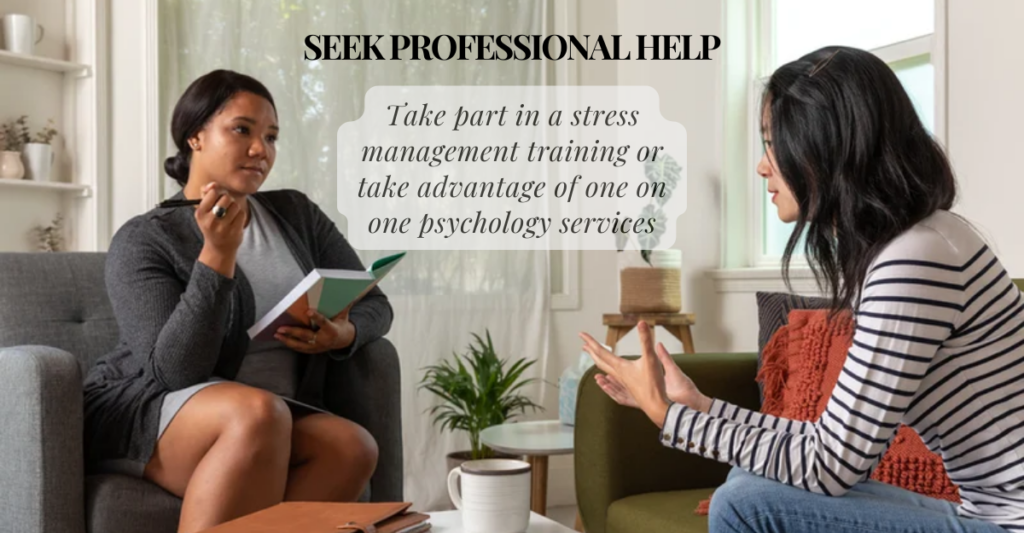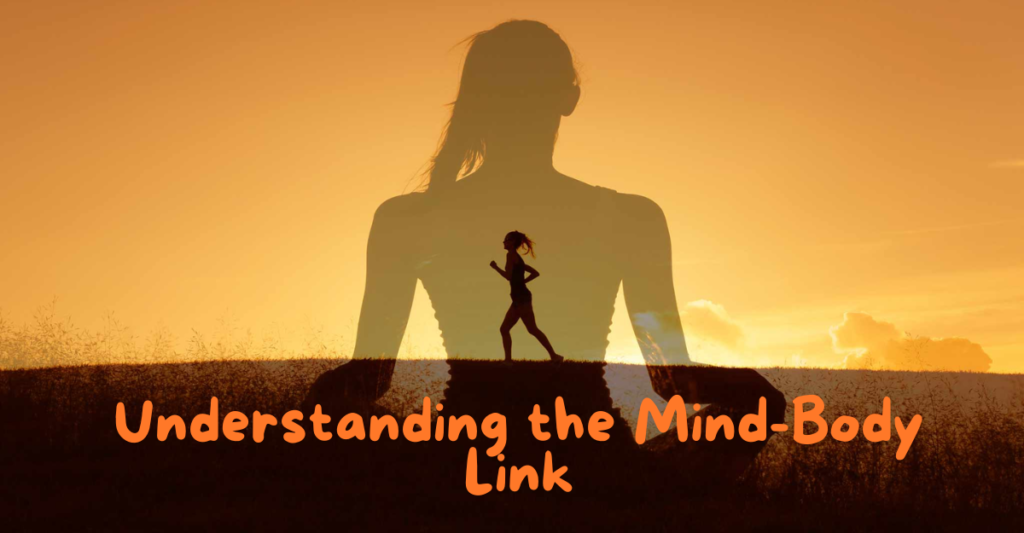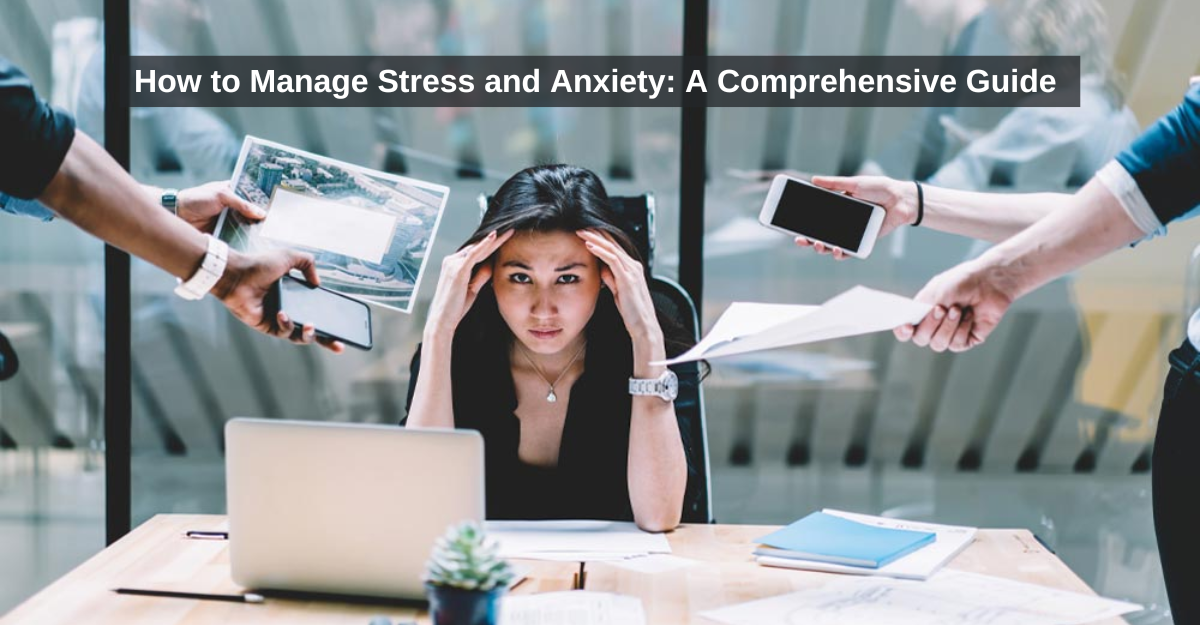How to Manage Stress and Anxiety: A Comprehensive Guide
- 118 Views
- Rupali
- May 15, 2024
- Blog Lifestyle Self-Care and Mental Health
Understanding Stress and Anxiety: What Are They and How Do They Affect Us?
Stress and anxiety are two of the most common mental health challenges that people face in today’s fast-paced world. Understanding what they are, their causes, and their effects is crucial for maintaining overall well-being.
Stress is the body’s natural response to perceived threats or demands, triggering a cascade of physiological reactions. It can stem from a variety of sources, including work pressures, relationship challenges, or major life events. Anxiety, on the other hand, is a persistent feeling of worry, fear, or apprehension about the future.
The symptoms of stress and anxiety can manifest both physically and mentally. Physical symptoms may include muscle tension, headaches, fatigue, and digestive issues. Mentally, individuals may experience racing thoughts, difficulty concentrating, irritability, and feelings of overwhelm.
The impact of stress and anxiety can be far-reaching, affecting various aspects of an individual’s life. Prolonged exposure to these conditions can lead to a weakened immune system, cardiovascular problems, and even mental health disorders like depression. It is essential to recognize the signs and seek appropriate support to manage stress and anxiety effectively.
Proven Techniques to Manage Stress and Anxiety Effectively
Effectively managing stress and anxiety is crucial for maintaining overall well-being. Here are some proven techniques that can help:
Mindfulness Practices: Engaging in mindfulness exercises, such as meditation, deep breathing, or body scans, can help reduce stress and anxiety by promoting present-moment awareness and relaxation.
Cognitive-Behavioral Therapy (CBT): CBT is an evidence-based approach that helps individuals identify and challenge negative thought patterns that contribute to stress and anxiety, replacing them with more constructive perspectives.
Exercise and Movement: Regular physical activity, whether it’s yoga, walking, or other forms of exercise, can release endorphins, improve mood, and provide a healthy outlet for stress.
Time Management and Prioritization: Developing effective time management skills, setting realistic goals, and prioritizing tasks can help individuals feel more in control and reduce feelings of being overwhelmed.
Social Support: Maintaining a strong support network of friends, family, or a therapist can provide a valuable outlet for processing emotions and receiving encouragement during challenging times.
By incorporating these evidence-based techniques into your daily routine, you can learn to manage stress and anxiety more effectively and improve your overall well-being.

Lifestyle Changes to Reduce Stress and Anxiety Long-Term
Adopting long-term lifestyle changes can be an effective way to manage stress and anxiety. Here are some key areas to focus on:
Sleep Hygiene: Establishing a consistent sleep schedule and creating a relaxing bedtime routine can help improve sleep quality, which is crucial for stress management. Aim for 7-9 hours of sleep per night.
Exercise: Regular physical activity, even just a daily walk, can release endorphins and reduce symptoms of anxiety. Find an exercise routine that you enjoy and can stick to.
Nutrition: Eating a balanced diet rich in whole, nutrient-dense foods can help regulate mood and energy levels. Limit caffeine, alcohol, and processed foods, which can exacerbate stress.
Work-Life Balance: Setting boundaries between work and personal time, taking breaks, and engaging in hobbies can help prevent burnout and provide an outlet for stress relief.
Implementing these lifestyle changes takes time and consistency, but the long-term benefits for stress and anxiety management can be significant.
When to Seek Professional Help for Stress and Anxiety
Feeling stressed or anxious is a normal part of life, but when those feelings become overwhelming or interfere with your daily functioning, it may be time to seek professional help. Here are some signs that indicate you should consider speaking to a mental health professional:
– Your stress or anxiety is persistent and doesn’t seem to improve despite your best efforts to manage it on your own.
– You’re experiencing physical symptoms like headaches, stomachaches, or insomnia on a regular basis.
– Your stress or anxiety is causing problems in your relationships, work, or other important areas of your life.
– You’re relying on unhealthy coping mechanisms like excessive alcohol or drug use to manage your emotions.
– You’re having thoughts of harming yourself or others.
Seeking professional help for stress and anxiety can provide numerous benefits. A therapist can help you develop healthy coping strategies, address the root causes of your distress, and provide support and guidance during difficult times. In some cases, medication may also be recommended to help manage symptoms.
There are various types of mental health professionals who can assist with stress and anxiety, including psychologists, licensed counselors, clinical social workers, and psychiatrists. It’s important to find a provider who is a good fit for your needs and preferences.
Remember, taking care of your mental health is just as important as your physical health. Don’t hesitate to reach out for professional support if you’re struggling with stress or anxiety.

Creating a Personalized Stress and Anxiety Management Plan
Stress and anxiety can have a significant impact on our overall well-being, both mentally and physically. To effectively manage these challenges, it’s important to develop a personalized plan that addresses your unique needs and circumstances. Here are the key steps to creating an effective stress and anxiety management plan:
Identifying Your Stressors: Begin by taking the time to reflect on the specific situations, events, or triggers that tend to cause you stress or anxiety. Understanding the root causes can help you develop targeted strategies to address them.
Developing Coping Strategies: Based on your identified stressors, work on building a toolbox of healthy coping mechanisms. This may include relaxation techniques, mindfulness practices, time management skills, or seeking social support.
Setting Achievable Goals: Establish realistic, measurable goals for managing your stress and anxiety. This could involve reducing the frequency or intensity of certain symptoms, improving your ability to cope, or achieving a greater sense of overall well-being.
Tracking Your Progress: Regularly monitor your progress by keeping a journal, using stress-tracking apps, or seeking feedback from trusted friends or professionals. This will help you identify what’s working and make adjustments to your plan as needed.
Adjusting Your Plan: As your needs and circumstances evolve, be prepared to adapt your stress and anxiety management plan accordingly. Review and refine your strategies to ensure they continue to be effective in supporting your overall well-being.
Remember, managing stress and anxiety is an ongoing process, and a personalized plan can empower you to take control of your mental health and find greater balance in your life.
Understanding the Mind-Body Link

The connection between our mental and physical health is undeniable. Our psychological well-being has a profound impact on our physical state, and vice versa. Understanding this mind-body link is crucial for achieving optimal health and wellness.
Research has shown that poor mental health can manifest in physical symptoms, such as headaches, muscle tension, and digestive issues. Chronic stress, for example, can weaken the immune system and increase the risk of various health problems. Conversely, physical ailments can also contribute to mental health challenges, such as depression and anxiety.
By recognizing the interplay between our psychological and physical well-being, we can adopt a holistic approach to self-care. Engaging in regular exercise, practicing stress management techniques, and prioritizing a balanced diet can all help support both our mental and physical health. Addressing the mind-body connection can empower us to achieve greater overall well-being and resilience.
Conclusion: Prioritizing Your Mental Health for a Happier, Healthier Life
Frequently Asked Questions ( FAQ’S)
How do stress and anxiety affect physical and mental health?
Stress and anxiety can have significant impacts on both physical and mental health. From a physiological standpoint, chronic stress triggers the release of hormones like cortisol that can wear down the body over time. This can manifest in issues like headaches, muscle tension, weakened immune function, and cardiovascular problems.
What are common symptoms and signs of excessive stress and anxiety?
Stress and anxiety are normal human experiences, but when they become excessive, they can have significant impacts on our physical and mental wellbeing.
Some of the most common physical symptoms include headaches, muscle tension, fatigue, upset stomach, and changes in appetite or sleep patterns. Emotionally, people may feel overwhelmed, irritable, restless, or have difficulty concentrating. Behaviorally, signs of excessive stress and anxiety can manifest as increased use of alcohol or drugs, social withdrawal, or difficulty managing daily tasks and responsibilities.
What are some effective strategies for managing and reducing stress?
Stress is a common experience that can have significant impacts on our physical and mental well-being. Fortunately, there are several effective strategies that can help manage and reduce stress levels. Here are some key approaches to consider:
1. Practice Relaxation Techniques
2. Prioritize Self-Care
3. Manage Time Effectively
4. Seek Social Support
5. Reframe Perspectives
By implementing a combination of these strategies, individuals can develop a toolbox of effective stress management techniques to maintain their well-being and navigate life’s inevitable challenges.
What are some relaxation techniques that can help alleviate anxiety?
Anxiety can be a debilitating condition that affects many people’s daily lives. However, there are several relaxation techniques that can help alleviate anxiety and promote a sense of calm. Here are some effective methods to consider:
Deep Breathing Exercises.
Progressive Muscle Relaxation
Meditation and Mindfulness
Guided Imagery
Exercise
Incorporating one or more of these relaxation techniques into a daily routine can be an effective way to manage anxiety and improve overall well-being.
How can time management and organization skills help minimize stress?
Time management and organization skills can be powerful tools for minimizing stress. By effectively managing your time and keeping your workspace and tasks organized, you can reduce feelings of being overwhelmed and increase your productivity.
Some key ways that time management and organization can help reduce stress include:
– Prioritizing tasks and commitments to focus on what’s most important
– Utilizing calendars, to-do lists, and other planning tools to stay on top of deadlines
– Minimizing distractions and time-wasters to make the most of your work hours
– Delegating or outsourcing tasks when possible to lighten your workload
– Incorporating breaks and downtime to recharge and avoid burnout
When you have a clear plan and your work environment is orderly, it becomes much easier to tackle projects and handle unexpected challenges.
Categories
- Blog
- Career and Education
- Career Development Advice
- DIY Projects
- Fashion and Beauty
- Fashion Trends
- Food and Cooking
- Food Trends
- Health and Wellness
- Home and Decor
- Home Organization Tips
- Interior Design Ideas
- Lifestyle
- Personal Development
- Productivity Tips
- Recipes and Cooking Tips
- Restaurant Reviews
- Self-Care and Mental Health
- Skincare and Beauty Tips
- Tech News and Trends
- Technology
- Travel
- Travel Tips and Hacks
Popular Tags
5 areas of personal development 5 benefits of self-care 5 ways to increase productivity 2024 fashion trends streetwear 2024 fashion trends woman Career career development plan cooking skills Daily skin care routine at home Digital Trends fashion trend forecast 2024 vogue Fashion trends 2024 fashion trends 2024 spring/summer fashion trends for women Food Trends Health and Wellness Healthy skin tips for face Home Organization Hacks https://wefocuseducom.com/ inexpensive home organization ideas Interior design ideas living room latest information technology trends Latest trends in fashion for ladies Lifestyle Lifestyle for Wellness list of careers in education mental health mental health awareness personal development examples positive mindset positive restaurant reviews (examples) practicing mindfulness productivity tips Self-Care Self-Care and Mental Health self-care tips for mental health spring/summer 2024 fashion trends women's technology time management skills Top 10 tips to maintain your mental health top new technologies Tried-and-Tested Recipes what are 5 careers in education what are the 3 aspects of personal development? What is self-care

